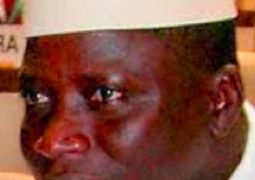Forum of Human Rights Workers
Wednesday
December 10 marked 60 years since the Universal Declaration of Human Rights
(UDHR) was adopted and proclaimed by world leaders in a United Nations General
Assembly meeting in
«For people of goodwill around the world, that document is more than just words: It's a global testament of humanity, a standard by which any humble person on Earth can stand in judgment of any government on Earth.»
The Guinness Book of Records describes the UDHR as the «Most Translated Document» in the world. It consists of 30 articles which outline the view of the General Assembly on the human rights guaranteed to all people. The International Bill of Human Rights consists of the Universal Declaration of Human Rights, the International Covenant on Economic, Social and Cultural Rights, and the International Covenant on Civil and Political Rights and its two Optional Protocols. In 1966 the General Assembly adopted the two detailed Covenants which complete the International Bill of Human Rights; and in 1976, after the Covenants had been ratified by a sufficient number of individual nations, the Bill took on the force of international law.
Prior to
the proclamation of the Universal Declaration of Human Rights, several
countries had proclaimed comparable declarations. Examples include the Bill of
Rights of England, the Bill of Rights in the
When the atrocities committed by Nazi Germany became apparent after the Second World War, the consensus within the world community was that the United Nations Charter did not sufficiently define the rights it referenced. A universal declaration that specified the rights of individuals was necessary hence the UDHR.
The
proclamation was ratified during the General Assembly on
Following this historic act, the Assembly called upon all Member countries to publicize the text of the Declaration and "to cause it to be disseminated, displayed, read and expounded principally in schools and other educational institutions, without distinction based on the political status of countries or territories."
The above is the rationale for the intervention that FLARE is undertaking, i.e. to fulfill the General Assembly's call for the popularization of the document as wide and far as possible. FLARE notes with concern the growing violations of rights and freedoms all around the world even when we have the full complement of the International Bill of Human Rights. We agree totally with Mrs. Roosevelt that, 'the destiny of human rights is in the hands of all our citizens in all our communities." Ultimately it is the responsibility of each and everyone to promote and protect human rights and freedoms in non-violent and peaceful means for one's own good and for the benefit of society in which one lives. We recall the words of Martin Luther King Jr. that the violation of rights anywhere is a threat to freedom everywhere.
FLARE calls especially on civil society to engage in the promotion and protection of humans rights so as to make the Universal Declaration of Human Rights a reality in our life time.
In the light of the above, FLARE will convene major players in human rights work to a public forum to discuss human rights and freedoms and the challenges and successes made so far, and what is to be done next.
The forum
will be moderated by the distinguished Senior Legal Practitioner and human
rights advocate Fafa E. Mbai and will be graced by the Secretary of State for
Justice and the Chief Justice of the
Remember:
The destiny of Human Rights in is your hands!!!


